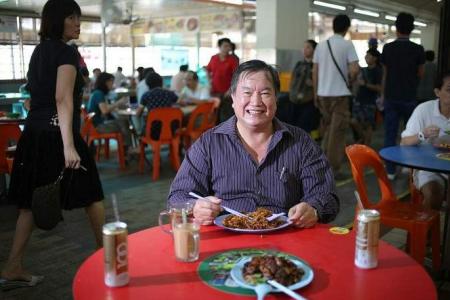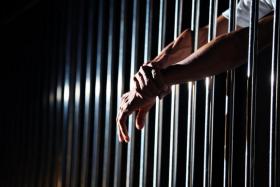‘Coffee Shop King’ died of haemorrhage after liver biopsy; death a medical misadventure
A man dubbed the “Coffee Shop King of Singapore” died in 2021 of acute intra-abdominal haemorrhage following a liver biopsy, contributed by advanced lymphoma.
Following an inquiry, State Coroner Adam Nakhoda found Mr Hoon Thing Leong’s death to be a medical misadventure.
Mr Hoon, 71, who owned one of the largest local coffee shop chains, Kim San Leng, died at the Singapore General Hospital (SGH) on April 29, 2021.
Lymphoma is a type of cancer that starts in infection-fighting white blood cells called lymphocytes, which are part of the body’s immune system.
In his findings dated May 10, 2023, the state coroner said that Mr Hoon had been diagnosed with coronary artery disease and had a pacemaker implanted on Sept 7, 2020.
On March 5, 2021, Mr Hoon, who had subdural haemorrhage – a type of bleeding that occurs outside the brain – was admitted to Mount Elizabeth Novena Hospital (MENH) for treatment.
He felt more relaxed after a surgery to treat the haemorrhage and was discharged four days later.
However, Mr Hoon was later re-admitted to MENH and was found to have low platelet counts after an assessment. Bone marrow samples were also taken from him.
On April 14, 2021, a doctor saw his children and was told that their father would be seeking further treatment at SGH under Professor William Hwang.
A computerised tomography scan at SGH the next day found that Mr Hoon had a cirrhotic liver.
According to the National Cancer Centre, Singapore, people with liver cirrhosis – an irreversible condition where healthy liver cells are replaced by scar tissue – are at greater risk for developing liver cancer and should undergo regular screening.
Professor Hwang then felt that a magnetic resonance imaging would help in Mr Hoon’s diagnosis but this was difficult to do due to his pacemaker.
The professor later told him that, ideally, he would want to perform a liver biopsy to investigate lesions found in the liver because the tests had shown only cirrhosis.
However, Mr Hoon’s blood count was low and as such, the risks of a liver biopsy were higher. Professor Hwang then recommended another bone marrow biopsy, which was conducted on April 21, 2021.
Apart from conditions including an increased production of platelets, red and white blood cells, Mr Hoon’s results were normal.
The professor then told Mr Hoon that a liver biopsy was necessary to determine if there was an underlying cancer and the latter agreed to undergo the procedure.
Dr Alexander Tan started the biopsy at around 4.20pm on April 28, 2021 and Mr Hoon was in a stable condition when he was later transferred to the general ward.
But at around 1.30am the next day, he appeared breathless and slightly drowsy. His condition deteriorated and he was transferred to the medical intensive care. He died at around 10.30pm on April 29, 2021.
The state coroner said that on autopsy, there was 4,000ml of dark liquid blood and 475g of dark red blood clots in Mr Hoon’s peritoneal cavity – the gap between the wall of the abdomen and other organs – over the anterior surface of the liver.
There was also a puncture mark present on the anterior surface of the liver’s right lobe that was adjacent to a blood vessel. However, there was no macroscopic evidence that any blood vessels had been perforated
The state coroner added: “I found that it was probable that Mr Hoon had bled from the punctures to his liver caused by the percutaneous liver biopsy. This was a known complication of a percutaneous liver biopsy and the presence of (lymphoma) could have contributed to the likelihood of bleeding.”
The state coroner also found that once Mr Hoon had collapsed, SGH’s reaction and treatment were timely and appropriate.
Get The New Paper on your phone with the free TNP app. Download from the Apple App Store or Google Play Store now


